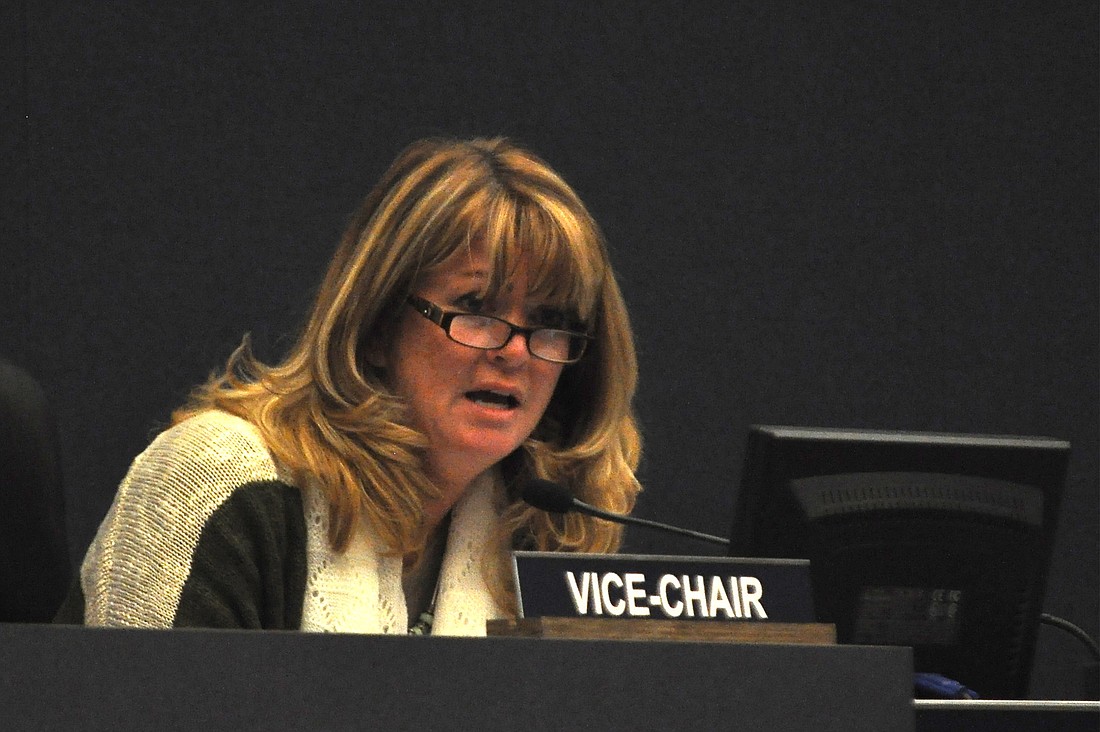- February 25, 2025

The Flagler School District tried to go “full inclusion” this year — bringing many of its exceptional student education students into general education classrooms — and for some parents and teachers, that has not worked, district ESE specialist Tracy Umpenhour said in a presentation at a School Board meeting Oct. 21.
“We went around to the three out of five elementary schools … just to go to the teacher planning and hear what they have to say,” Umpenhour said. “That was a major eye-opener to me, and I gained a lot of insight. But we’re listening. We’re listening to what people have to say, and we’re modifying what we have in place to make sure we get this right.”
Since the beginning of the year, the district has organized an advisory group for general education and ESE teachers, which will begin meeting in November; started holding regular meetings about inclusion with parents and school administrators; added a pre-K class for students with autism spectrum disorders; and added 15 paraprofessionals who will work one-on-one with ESE students, bringing the total number from 10 to 25 since the beginning of the year.
There was a public outcry last month when Dr. Myra Middleton wrote an editorial in the Palm Coast Observer endorsing the inclusion program, and parents and teachers left dozens of comments on the online article condemning the changes. Some showed up at this year’s State of Education address, imploring the district to be more responsive to their needs.
There and at the Oct. 21 meeting, parents have complained of students being shoved into general education classes without the help they needed to keep up, or being put at risk of physical or emotional harm because they needed support throughout the school day that they weren’t getting.
During the meeting, School Board member Colleen Conklin hammered one issue that has drawn such complaints: that of testing ESE students every quarter with standard, grade-level assessments that affect their term grades, even when the district knows those ESE students are several grade levels behind.
She described the problem from a parent’s perspective: If the district has a fifth-grade ESE student that it knows is at a third-grade level, “Why are we tormenting them and continuing to give the districtwide assessment on the fifth-grade level?”
Curriculum Specialist Denise Haymes said that the district is trying to have students “exposed to grade-level standards.”
Conklin was not satisfied, ultimately raising her voice, and demanded staff cite a state statute that supports the policy. She questioned the logic of giving students individualized, third-grade-level instruction in the classroom and then, every quarter, giving them a standardized fifth-grade-level test that gives them no chance to succeed.
“It’s not right,” she said, adding: “I think it’s completely inappropriate.”
One man, speaking during the public comment period at the Oct. 21 meeting, said his autistic son, who is a “flight risk,” has been placed in a regular classroom where he regularly runs away and has to be chased down by staff.
Another said his autistic child was also struggling, and that he “can’t even get a call back” from district staff.
Conklin said teachers told her they’d been handed ESE students with absolutely no training on how to teach them. She asked Umpenhour how that could have happened.
Umpenhour said that the district has provided opportunities for training, but that it “probably focused more on our ESE teachers than we did our general education teachers,” a move she said “was probably a wrong decision.”